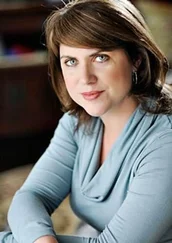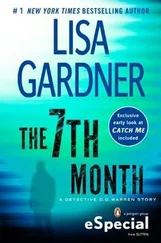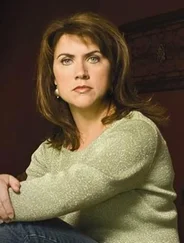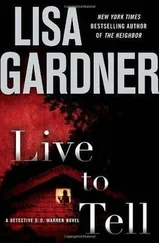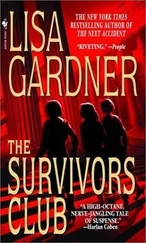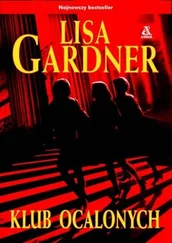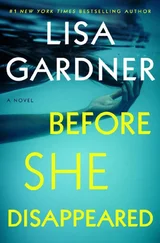D.D. shrugged. “Then she needs to spend more time reading her employer’s rules and regs. Her mistake, our opportunity.”
O nodded. “Smart,” she said finally, which D.D. would’ve taken as more of a compliment if the beautiful young detective hadn’t sounded so surprised.
“Gee thanks.” D.D. pulled together her notes, rapped them into one eight-and-a-half-by-eleven stack, then rose to standing. “Now you just have to keep it our little secret while speaking to her this afternoon.”
“We’re speaking to her this afternoon? Why?” O looked puzzled. “We don’t have any developments from the Facebook page yet. People are just starting to friend it. Frankly, I’m not sure eight P.M. tomorrow night is enough time, even by the viral standards of the Web.”
“It’s not about the Facebook page. I have news for her, however. Worth her paying us a visit.”
Neil had also risen to standing. “You know who killed her friends?” he asked.
“Nope. I found her mother.”
DID ALL DAUGHTERS FEAR THEIR MOTHERS? It was food for thought, after D.D.’s own breakfast with her parents. Even now, three hours later, she couldn’t decide which moment was the most humiliating. Maybe when she’d first showed up in the lobby of the Weston Hotel in Waltham, and her mother had pointedly asked, “Isn’t that the same outfit you were wearing last night, dear?”
D.D. hadn’t even thought about it, given that she pulled a lot of all-nighters on the job and wardrobe change was generally the least of her concerns. She’d brought that up. Her father might have even appeared sympathetic. Then they’d sat at the table. Her mother had wanted to know where Alex and Jack were. D.D. had answered that Alex had to teach today at the academy, so Jack was at day care.
Her mother had gotten that look again. Like she was sucking on lemons. Which had pissed D.D. off, because if memory served, her mother hadn’t exactly played house when D.D. was a baby. Her mother had gone back to teaching, too close to tenure to give up now. D.D. had gone to day care. Hell, D.D. remembered loving day care. There were other kids who rolled and tumbled and got dirty and laughed hard. Day care was nirvana. Home was all “Sit still, don’t make that face, for God’s sake can’t you stop fidgeting for just one minute?”
No was the general answer. D.D. couldn’t be patient, couldn’t sit still, couldn’t stay in one place. Even now, she was forty-one, and within the first two minutes of breakfast she was compulsively folding and unfolding her napkin on her lap. It was either that or scream.
Her mother had ordered a bowl of fruit. Her father had asked for toast. D.D. had gone for eggs Benedict with extra béarnaise sauce.
Her mother had arched a brow. Fat, cholesterol-should D.D. really be eating such things at her age?
Interestingly enough, her mother’s lips had never moved, her throat had never vocalized the syllables. Turned out, she didn’t have to actually speak. She could communicate an entire range of disapproval all with the single lift of her brow.
If D.D. hadn’t been so thoroughly infuriated, she would’ve been impressed.
They didn’t speak while waiting for their food. They just sat there, a father, a mother, a daughter, who all these years later couldn’t bridge the divide. And eventually D.D. had stopped feeling so angry and simply felt depressed. Because they were her parents and she loved them in her own way and understood they loved her in their own way, and what a shame it didn’t make bearing each other’s company any easier.
Food came. They ate gratefully.
D.D. had thought she just might survive the meal, when her mother chewed her last piece of cantaloupe, set down her fork, looked D.D. in the eye, and stated, “This is what I don’t understand: If Alex is good enough to father your child, why isn’t he good enough to marry? I mean really, D.D., what are you waiting for?”
D.D. had frozen, forkful of eggs Benedict midair, and stared at her mom. Then, belatedly, she’d turned her gaze to her father, who was resiliently studying the white linen tablecloth. Coward.
“I’m glad you like Alex,” D.D. had mumbled at last, then set down her fork and bolted for the bathroom. By the time she’d returned, her mother sat pinch-faced, staring straight ahead. Her father had his hand lightly on hers, but whether that was offering comfort or asking forgiveness, D.D. couldn’t tell.
They were an attractive elderly couple, she realized, approaching the table. They fit together in a way you could see from across the room. And maybe that was the problem. They were the unit. And she was forever the outsider, looking in.
She kissed her mom on the cheek, feeling the rigidness of her mother’s spine. She kissed her father as well, feeling the dry brush of his lips on her cheek. Then she paid the bill and got out of there.
At a certain point, you had to agree to disagree, even with your own parents. Logically she could accept that. But it hurt. It would always hurt.
At least she knew, somewhere deep down inside, that her mother loved her.
She wondered what Charlene thought about her mother, a woman who’d physically abused her most of her young life. But at least she’d let Charlene live, which based on the police reports D.D. had read just this morning, was more than Christine Grant had done for her other two children.
Parents and children. Mothers and daughters.
Love and forgiveness.
And homicide.
D.D. picked up the phone and made the call.
I WAS TWITCHY when I first took Detective Warren’s call. Twitchier, by the time I departed for BPD headquarters. I left my aunt behind, nestled with Tulip in my room. Given her exhaustion from the early morning drive to Boston, it hadn’t taken much to convince her to rest. I’d told her I needed to tend to a few things before work. No need to mention my conversation with a local homicide investigator. That Detective Warren had located my mother. That she had more information on the baby sister and baby brother I myself had just remembered a few hours ago. No need to mention my growing conviction that the past was closing in on me for a reason. That I was remembering my failings just in time for judgment day.
Three P.M. Friday afternoon. Twenty-nine hours before 8 P.M. Saturday night. Sky had finally cleared and turned that crystalline blue that marks bitterly cold winter days in Boston.
The brightness hurt my eyes, encouraged me to keep my head down and my shoulders hunched, when I should’ve been walking shoulders back, eyes straight ahead, taking constant inventory of the world around me. Trees cast skeletal shadows on the white snowy ground. Corners were mushy with slush and filled with blind spots caused by heaping snowbanks.
What if the killer had gotten bored with January 21 as the annual day to murder a young, defenseless woman? Maybe he’d realize there was more opportunity on the 20th, when his third victim, namely me, wouldn’t be expecting it yet. Eight P.M. was also an arbitrary time, a rough average between two approximate times of death in two separate homicides. Maybe morning was better for the murderer this year. Or later Saturday night or even Sunday morning. A lot could happen in a year. The killer could’ve moved, gotten a new job, maybe fallen in love, had a child.
He or she could be following me. Right now. Maybe he/she had started a week ago. Or a year ago: Officer Tom Mackereth, carefully scoping me out on the job. Or my aunt, suddenly showing up on my front door, after nearly a year apart. Or a long-lost friend, that kid from high school I couldn’t remember but would vaguely recognize, having spent yesterday flipping through the yearbook. Someone I wouldn’t immediately assume was a threat. Someone smart enough, practiced enough, to walk right up to me without tripping any of my internal alarms.
Читать дальше


